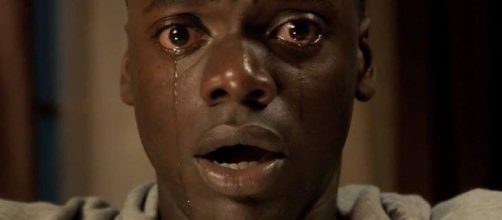"Get Out" has been out in US cinemas now since February and is fast becoming a modern cult classic. If you haven't had the chance to see it yet — I strongly recommend you do so.
Director Jordan Peel, with his satirical but heavily politicised horror, has already broken records as the first black director to gross more than $100 million with a directorial debut. The film also carries a 99 percent score on Rotten Tomatoes, has already been nominated for various awards and received universal critical acclaim. It seems Peele's mix of black comedy and horror fused with political statement seems to have struck a chord — and people are continuing to spread the love.
So why all the love for "Get Out"?
The reason for the film's success could be down to Peele's insistence to connect politically under the guise of a horror during such turbulent times in US politics. With the recent spate of black deaths at the hands of police officers and the rise of Black Lives Matters groups, "Get Out" has no doubt managed to capture the zeitgeist of Trump's America.
Ever since we saw the film's trailer before its release, with the provocative tagline "Do they know I'm Black", we knew it wasn't going to be your standard, run of the mill, modern horror. The opening abduction scene of Andre — the character soon to be turned into the quintessential Uncle Tom — sets the tone of the film as dark, serious and instantly forboding.
But the comedic value is established fairly early on with the phone call chemistry between the lead character Chris, played by the talented Daniel Kaluuya, and his best friend Rod, played by comedian Lil Rey Howery.
Daniel Kaluuya's performance in "Get Out" is spellbindingly fantastic. In his first theatrical main role, he is not only responsible for the jostling between comedy and tension throughout the movie, he is the tension.
Kaluuya Starts off as cool as a cucumber, even when all around him seems to get weirder and weirder — we figure if it's ok with him...it's ok with us. He almost serves as a conduit for the viewer's panic levels, as once his facial expressions start to turn from relaxed into sheer fear, we are also paralyzed and plunged into the darkness with him.
And that is when the pendulum of fear starts to swing. Kaluuya kept the calm so well until the pivotal hypnosis scene, where the fear is implanted in the viewer via his shocked reaction, intensifying with every stir of the teacup; a literal, slow descent into despair for Chris and absolute suspense for the audience.
Once the fear is installed, there is no going back. Peele's mastery at building tension is exemplary, proving he is more than just a comedian. However, not content with merely offering a comedic horror in the same vein as "Scream" or "The Burbs," the political implications of "Get Out" hit us as hard as the deer gets hit at the start of the movie.
How is 'Get Out' political?
The killing of the deer serves as an omen to not only the plot but America's right-wing hatred and tacit racism.
The police question is also raised, as we see complacent police racism directed towards Chris — and also ironically, with the arrival of his Transport Officer savior at the end of the movie.
There are constant references and allusions to black people as animals. Bradley Whitford's character, who congratulates Chris on the accidental killing of the deer, declares his will to 'cull' all deer as there are 'thousands of them' destroying the system; a blatant metaphor for black people in America, subtly and seriously nestled in between the black comedy.
The unhinged brother of Chris's girlfriend, played by Caleb Landry Jones, attempts to incite Chris by calling him a beastly 'fine specimen', complimenting him on his physical genetics and challenging him to a duel.
The obvious but persistent references to the word 'beast' bring back recollections of Hollywood's old racist depictions, like those in the original "King Kong" (1922).
But Peele doesn't stop there, and as if in some post-ironic mocking sense, turns Chris into a literal beast who brutally murders all those in the family who had him under duress. Whilst being both an ambiguous approval of the Black Lives Matter's desire to fight racism with violence and a mockery of Hollywood's racist history, the chaotic scenes are never far from a burst of laughter.
For all Peele's ability to fuse these elements into what appears a timeless classic, there are some pitfalls. Allision Williams, playing the character of Chris's girlfriend Rose, is a little obvious in her acting and purpose.
The secret of her significance to the plot is fairly self-evident early on — as a femme fatale for Black guys in a horror movie, it wasn't too hard to see the plot's intentions.
The film does wander slightly into farce with the removal of brains, tv bound hypnosis, and the sudden murderous nature of the protagonist. But "Get Out's" descent into madness reflects the absurdity of the white supremacist tale it is allegorically telling. Reminding us that these tales, however ridiculous and insane, still take place in today's America.


